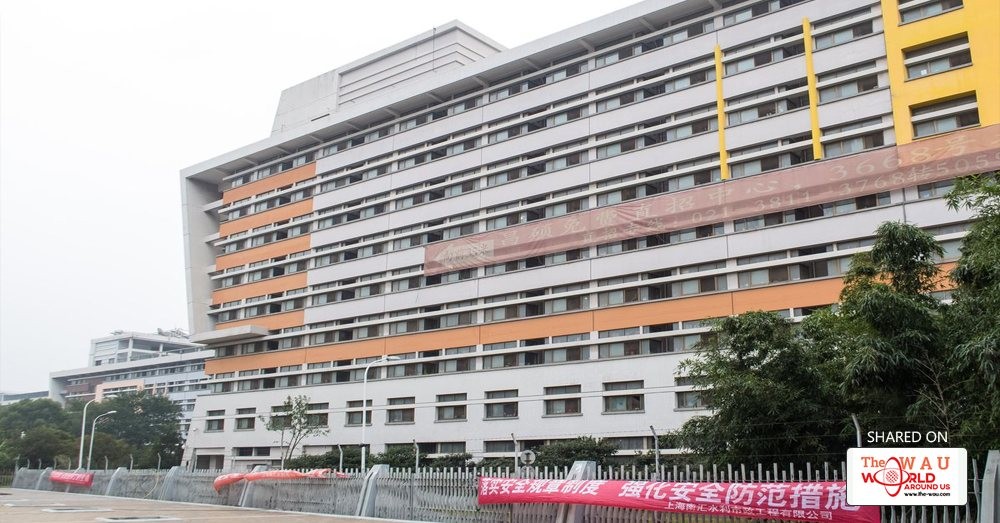Dejian Zeng may have built your phone. Or at least worked on it, anyway.
The second-year masters of public administration student at NYU Wagner spent six weeks last year working in a Chinese factory manufacturing iPhones for Cupertino-based Apple. Six days a week he screwed approximately 1,800 screws into 1,800 iPhones. Every day. Over and over again.
Why did he do this? It wasn't for the wages, which at approximately 3,100 yuan a month (roughly $450) are not even enough to buy one of the iPhone 6s phones he helped produce. Instead Zeng teamed up with New York University and the NGO China Labor Watch to investigate working conditions in a Chinese manufacturing plant.
Zeng was tasked as the investigator, and his target was the Taiwanese electronics giant Pegatron.
In a video interview with Mashable, Zeng explained that getting the job was the easy part.
“I just show up in front of the factories, and I saw a lot of people already carrying their luggage and waiting in line so I just step in line and wait," he recalled. "And then, when it’s my turn, they ask for my IDs, ask me to show my hands, and they ask me to recite English alphabet. But that’s basically the interview process, and then I was in.”
His daily routine, which included 12 hours spent inside the Pegatron factory located near Shanghai, was equally straightforward.
“So my station is called ‘Station 26: Fasten Speaker to Housing,’" Zeng said. "So what I do is that I put one screw over the speaker and fasten it on the back case of iPhone, and that’s the only work that I do. It’s just one screw for about 12 hours in the factory.”
Mashable reached out to Pegatron for comment but the company did not respond.
The assembly line on which Zeng worked employed around 200 people and was responsible for putting together 3,600 phones a day. The work was not easy, and Zeng noted that sitting in the backless chairs all day left him in pain.
He slept in a dormitory that housed eight people per room, with around 200 people per floor. Each floor had only one bathroom.
While the hours were long — he worked around 10.5 hours each day with the other hour and a half at the factory consisting of breaks and meals — Zeng told Mashable that the physical conditions could have been worse.
"It’s not the traditional sweatshop that we would think about," he explained. "It’s pretty clean, it’s pretty bright, and they have AC and all this stuff."
He was not a fan of the mandatory overtime, however. “What shocks me is that overtime is involuntary," he told Mashable. “[The workers] are actually kind of forced to do overtime.”
In addition to this, managers were prone to bouts of anger — even once shutting down the entire assembly line solely for the purpose of gathering all the workers together and screaming at one allegedly underperforming employee.
Zeng speculated that managers feel free to act this way because any complaint he filed went directly to the factory itself, and Pegatron could prevent those reports from ever reaching Apple. Not so at Foxconn, another Taiwanese manufacturer of iPhones, where Zeng said workers are able to report problems directly to Apple.

Zeng's six weeks spent at Pegatron are not the first time a reporter has gone inside a typically press-shy iPhone assembly plant. Foxconn in particular has seen its share of scrutiny following a string of worker suicides in 2009 and 2010, and a deadly 2011 fire at a plant that manufactured iPads.
In 2012, a reporter managed to take photos of the interior of the Foxconn Tai Yuan factory by posing as a worker, and in 2012 Marketplace's China correspondent in Shanghai was officially allowed inside a Foxconn plant.
In the end, Zeng quit his job at Pegatron and went back to school. However, his time at the plant left an impression on him.
“We have a lot of stereotypes for workers," he observed. "I think they are from rural areas, they are uneducated — but it turns out a lot of them are very interesting people, and a lot of them are very capable people."
“Before I get into factories I take a lot of things for granted,” he added. “I think it’s very important to remember that there are people behind this products that provide good service to us.”
Zeng hopes that more attention paid to the conditions of his former coworkers will result in higher wages, a better complaint system, and a better attitude among managers.
“We need to be aware that behind this products there are millions of workers producing it.”
Share This Post














